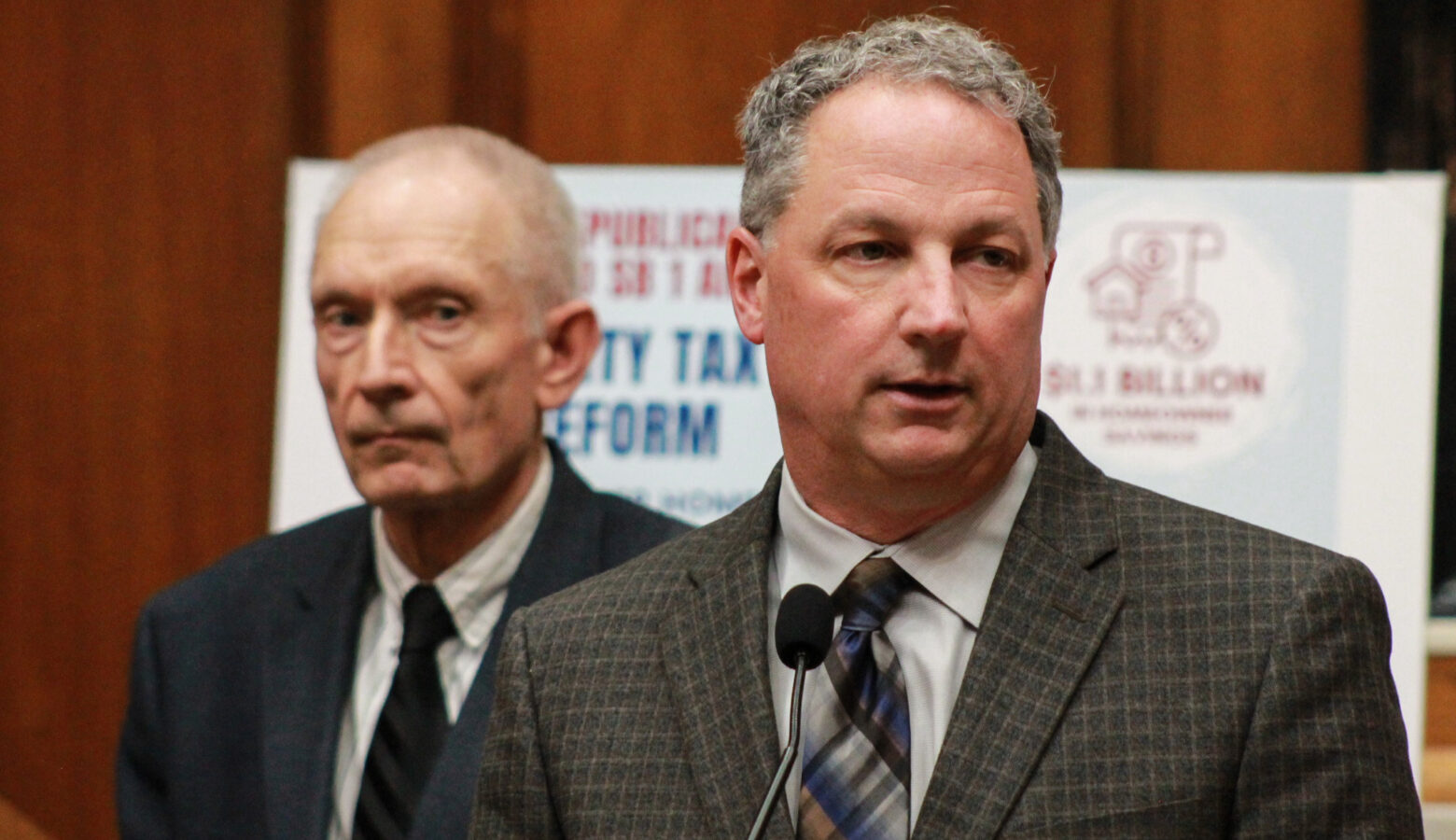House Republicans unveil property tax reform plan that aims to help a majority of homeowners

House Republicans unveiled a property tax plan Friday that’s very different from the proposals pushed by Senate Republicans and Gov. Mike Braun.
It’s a plan House leaders say will mean a majority of homeowners pay less on their property tax bills in 2026 than in 2025.
They also say they can’t get more specific about which homeowners will save under their version of SB 1 — and how much.
The House GOP proposal creates a new property tax credit for all homestead owners: 7.5 percent, for a reduction of up to $200 on your final bill.
How much will the average homeowner save? House Speaker Todd Huston (R-Fishers) said that’s difficult to say.
“I think it’s hundreds of dollars, but I’d hate to be super precise because — at the end of the day — it’s going to matter where you live and what your local units are doing,” Huston said.
House Ways and Means Chair Rep. Jeff Thompson (R-Lizton) said it also creates additional new credits for fixed-income seniors, $150; and disabled veterans, up to $250.
“And gives them the kind of relief that they really deserve,” Thompson said.
Join the conversation and sign up for our weekly text group: the Indiana Two-Way. Your comments and questions help us find the answers you need on statewide issues, including our project Civically, Indiana and our 2025 bill tracker.
Property taxes solely fund local governments and schools. Thompson said initially, most local governments won’t see big revenue losses — just not as much new revenue as they would’ve received without any changes to the system.
“I can’t say there won’t be some outliers, but by and large, at a statewide view at least, it’ll be around 3 to 4 percent, still, new additional dollars — just not as much as they would’ve received,” Thompson said.
The House GOP proposal also makes long-term changes to property taxes, phased in over several years. Huston said the goal is a more transparent system that’s easier to understand.
“If you raise your rate, a taxpayer will pay more. If you cut your rate, a taxpayer will pay less,” Huston said. “And right now, in our current system, that is not true.”
Those long-term changes include a single homestead property tax deduction that’s two-thirds of the assessed value.
Local governments will also have more tools to generate revenue through local income taxes — which House leaders said will help reduce dependence on property taxes.
But in a statement, Rep. Greg Porter (D-Indianapolis) said the Republican proposal is far from a solution.
“This plan encourages local governments to raise their local income tax rate, so you’ll get more money in your right pocket but have to pay more out of your left,” Porter said.
Porter said big businesses are the big winner under the House GOP plan. That’s because the proposal gradually eliminates the business personal property tax, a tax on business equipment, for all purchases made after Jan. 1, 2025 — which Porter said would be an eventual cost of $1 billion.
Democrats also criticized the House GOP’s plan to incorporate SB 518 into the property tax reform package. That measure requires traditional public schools to begin sharing some of their property tax revenue with charter schools.
“Property tax sharing would begin in 2028, so there’s plenty of time for communities to adjust,” Huston said. “It’s a four-year phase-in. So we feel like we’re accommodating all these needs and following the long-term practice of money following the kid.”
The Ways and Means Committee plans to advance the full proposal Monday.
Brandon is our Statehouse bureau chief. Contact him at bsmith@ipbs.org or follow him on Twitter at @brandonjsmith5.

